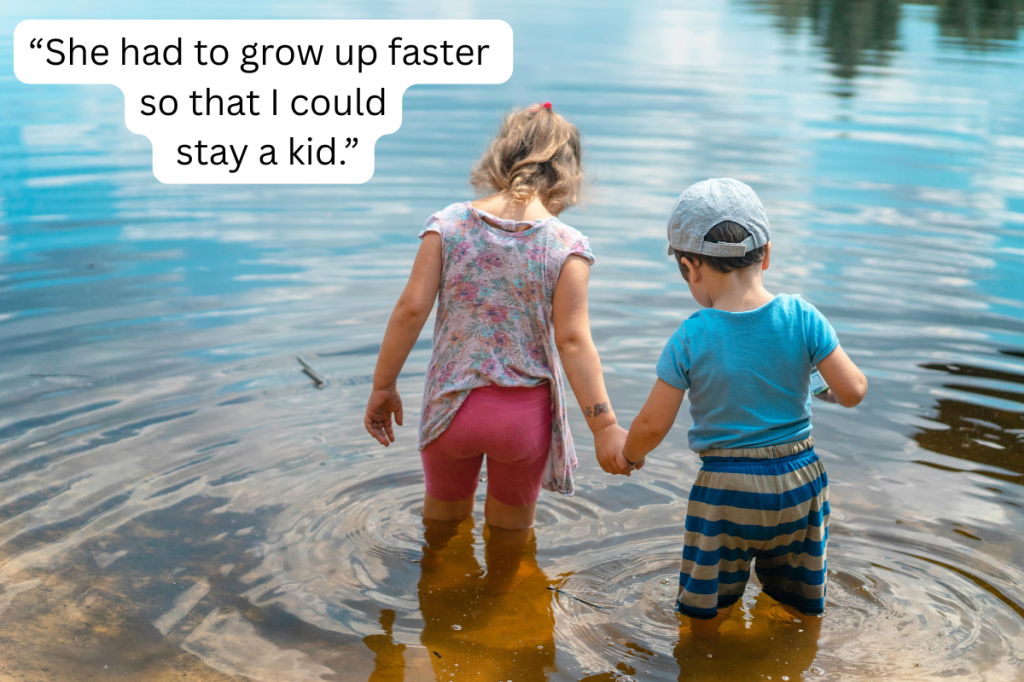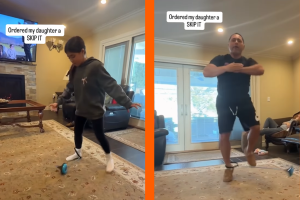I put my parents through existential hell when I was a kid.
Even at just 7 or 8 years old, I didn’t see the point in anything, and it left me defeated.
What, I just go to school, come home, do homework, go to bed, and then get up and do it all over again? What are even doing here?!
It must have frustrated them to no end. Looking back, of course they didn’t have the answers! None of us do! It couldn’t have been easy trying to explain that to a child who just wouldn’t let it go.
A recent Reddit thread on r/Daddit made me realize I wasn’t the only kid who had these big, philosophical thoughts.
A dad posted: “I was putting my 7 y.o to bed when he asked if it’s weekend tomorrow. I said yes, then he asked ‘and then it’s school again?’, then painstakingly said ‘and then we do it all over again’. My boy has just realised what life is.”
Dozens of other parents chimed in on the thread to share that their kids, too, had at some point become aware of the drudgery of daily life.
“On the school run earlier this week my son realised he’ll have to work one day like mummy and daddy. Shortly followed by the words ‘and then I’ll be tired’”, wrote one.
“My 8yo daughter asked me what the point of life is if all we do is slave away to pay taxes,” said another.
And here’s a brutal one for you:
“When my daughter was four she stood on the 10th step of our staircase and decided it was time for her to take her first flight. I told her that was not gonna happen and she was about to really hurt herself. She asked what age she’d finally be ready to fly. I told her never. People don’t fly. She teared up and asked ‘what’s the point of life then??’.”
When kids start questioning life, existence, and the universe, it’s called Existential Intelligence. Believe it or not, it’s a good thing.

Existential Intelligence refers to an ability to see the big picture.
So often we’re focused on more tangible skills like math, reading comprehension, language skills and memorization in kids.
But some kids just seem to have a knack for seeing the whole forest, so to speak. And that can lead them to ask big questions. According to MentalUp, common questions from kids who excel in this kind of thinking are:
- Where did we come from?
- Where do you go when you die?
- Why are there numbers?
- What are our lives for? / Why are we here?
(If you’ve ever had to explain the concept of death to your kids, you know it’s not a whole lot of fun.)
Even though it might be frustrating to be put on the spot with questions you can’t answer as a parent, Existential intelligence in kids is a good sign. It means they’re curious, empathetic, and want to know they ‘why’ behind what they do and what they’re asked to do. They’re good at connecting skills they’re learning in school to the real world (and they might struggle if they can’t figure out why they’ll ever need to know the names of all the generals in the Revolutionary War).
These kids may make great leaders, great communicators, and talented artists as they become older.
But in the meantime…
How to handle your kids’ big questions about life and the universe

I asked Dr. Ryan Sultan, a child board-certified psychiatrist and professor at Columbia University, for some tips on how parents can handle kids with high Existential Intelligence.
What do you do if they get really bummed out about the disappointing realities of life? How do you explain the meaning of existence to them when you haven’t figured it out for yourself yet?
“[Existential intelligence] can be a beautiful quality in kids, but it can also bring challenges—especially when they start to feel a sense of futility in everyday routines or even feel disheartened by the seemingly endless cycle of school, homework, and activities,” he says.
Step one is to validate their feelings, and avoid dismissing or trying to distract them.
“Many kids, particularly those who think deeply, go through phases where they wonder if life is just a series of monotonous routines. Let them know that adults also grapple with these questions—and that it’s okay to feel uncertain or even bummed out by it.”
Next, instead of giving them the answers you don’t have, try asking questions.
“Encourage them to explore what these feelings mean to them. Ask questions like, ‘What do you think would make life more interesting or meaningful?’ or ‘What are the things you enjoy that make you feel alive or excited?’”
Help them understand that these are questions they’ll be asking themselves their whole lives. It’s not so much about having the answer right away, but seeing life as a lifelong journey of learning and curiosity.
Help them find meaning in art, nature, community, or spirituality.
“For some children, creative outlets like art, music, writing, or even spending time in nature can be powerful ways to explore and express these feelings,” Dr. Sultan says. “Others might find meaning through spiritual practices, like meditation or mindfulness, which can help them feel more connected to the present and less burdened by the future.”
Helping them give back by getting involved in the community or with a charity can make a big difference too. And if you can model the ways in which you find meaning amidst the daily drudgery, that’s even better!
It’s a good thing when your kids ask these kinds of questions, even though they’re hard (or impossible) to answer. It means your children are empathetic, curious, and want to know more about how the world works. The most important thing is not to reframe everything positively and try to “cheer them” out of it if these philosophical quandaries put them in a funk. It’s OK to get a little down because you’re not sure what the greater purpose is — we’ve all been there. That just means they’re human. Encourage them to get a little more comfortable with the not knowing, and to never lose that sense of curiosity.






























